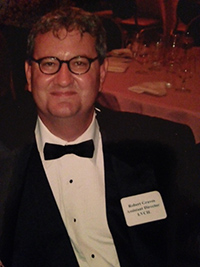
Some of my earliest memories go back to when I was in kindergarten. These are not happy memories of friends, coloring, chocolate milk, and cookies. Rather they are memories of profound sadness with a strong desire to disappear. I did not know the words depression, suicide, or mental illness, but I did know that I was very sad, alone, and all I wanted to do was just go away and never be heard from or seen again. In later years, coming to terms with these memories actually became a comfort to me as I realized that a five year old would not be having suicidal ideations all the time if there were not some profound clinical cause of these feelings and thoughts. This helped me realize that my character was not flawed and that I was not a “bad person”. Instead I was sick. I have a real illness. However, I had a difficult road to this realization.
In my teens, I started to self-medicate my constant feelings of despair and sadness. It did not take long before I was addicted to alcohol. In my mid-twenties, at the intervention of my employer, I went to drug and alcohol rehab and became sober. My first year of sobriety was as if I unleashed a terrible monster in my mind as my untreated depression raged at full fury without the numbing effects of alcohol. In little time, I became jobless, delusional, and suicidal. I had a clear and intentional plan to kill myself. I sincerely thought I would be doing the world a favor and the voices I kept hearing in my mind told me it was the right thing to do.
Another intervention saved my life. An out-patient addiction counselor I had been working with called the local crisis team. In minutes, two people knocked on my door and sat down and spoke with me. I spent the next eleven months between in-patient psychiatric care and an out-patient partial hospitalization program. After numerous trials of medications, combinations of medications, intensive and sometimes confrontational therapy, and a round of ECT, the wounds in my soul suffered from a lifetime of depression began to heal.
In the nearly two decades since I was hospitalized with severe, psychotic depression, I worked in several capacities caring for and providing community based services for people with a variety of disabilities. I also cared for my wife, who was slowing dying from complications caused by lupus. When my wife passed away in 2005, I found myself again at the door of a professional counselor. I have since come to view monthly appointments with mental health professionals as “preventative maintenance”, much like taking my car for an oil change. I remain on psychotropic medication and will be for life. I continue to monitor my symptoms, mood changes, and even my behavior. I am okay with this because I have also learned that I have an inner strength and a determination to persevere, survive, and thrive.
I once had grandiose ideas of what I would become in life. I now know that a simple life being honest with myself and others and working to help make the world just a little bit better is truly noble and honorable. I have left full-time employment but I continue to volunteer my time and energy to helping others. Bipolar type II has been added to my diagnosis to reflect the frequent hypomanic episodes I experience. I must continually monitor symptoms and my medication sometimes needs adjusting. I have remarried and my spouse is truly a partner who supports and encourages me to maintain my mental health. She monitors my symptoms and is honest with me even when it may make me uncomfortable. Being male, I have learned there is no shame in being honest about my mental illness. I feel a calling to help other men realize this as well because society has long taught that talking about our feelings was not okay. This barrier caused by stigma destroys many lives and needs to be broken. There is strength in honesty and healing.
My name is Robbie Graves. I am a man with mental illness. I preserve, strive, and thrive.


